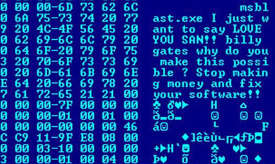Editor’s note: FOSS Force will be offering live video streaming of all OSCON keynote addresses beginning Wednesday, July 22, 2015 at noon EDT.
FOSS Week in Review
I was ready to pack my bags for OSCON on Friday with a pretty quiet week, and a quick roundup which would allow me to hit the road and head north to Portland. No such luck. We have OSCON coverage coming next week — more on this later — but some of the more scintillating stories of the week include the following:
FSF, Canonical Makes Progress on Licensing: The $140,000-plus in donations is still missing, but that’s not the biggest news coming from Canonical this week. After two years of wrangling between the Free Software Foundation and Canonical — with a little help from the Software Freedom Conservancy — the FSF announced that they have made some progress on updated licensing terms for, as the FSF calls it, “Ubuntu GNU/Linux.”




 The trolls are still at it. In spite of the fact that the Supreme Court was busy ruling against them last year — between January and June it ruled against patent holders six times — the number of cases being brought by non-practicing entities (NPE), which is one measure of a troll, continues to rise. According to a report published in June by patent defense organization
The trolls are still at it. In spite of the fact that the Supreme Court was busy ruling against them last year — between January and June it ruled against patent holders six times — the number of cases being brought by non-practicing entities (NPE), which is one measure of a troll, continues to rise. According to a report published in June by patent defense organization 

 None of them even approach usability for the everyday computer user. None. And you would think that of all these choices, one of them has to work…or provides documentation reasonable enough for everyone. You would think.
None of them even approach usability for the everyday computer user. None. And you would think that of all these choices, one of them has to work…or provides documentation reasonable enough for everyone. You would think.


 MS Writes a Check: Well, this was probably inevitable. With a generous donation, Microsoft has become a gold contributor to the OpenBSD project — the first gold contributor — in an effort to get OpenBSD’s help in porting OpenSSH to Windows. This comes from a
MS Writes a Check: Well, this was probably inevitable. With a generous donation, Microsoft has become a gold contributor to the OpenBSD project — the first gold contributor — in an effort to get OpenBSD’s help in porting OpenSSH to Windows. This comes from a 



